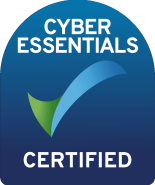
The Digital Skills Revolution: Are You Ready?
The digital skills revolution isn’t on its way; it’s already here. As a career development professional, I’ve seen first hand how the landscape of essential
Looking for a qualified, experienced and registered career coach in London or for career coaching online? Our expert career coaches provide career coaching, executive and leadership coaching, outplacement and career development services online to suit your needs. For over 20 years, we have helped thousands of professionals achieve successful and fulfilling careers. Whether you are taking the next steps in your career, changing jobs, or changing careers, we can help you craft a career you’ll love.
Countless studies have shown that when we are happy in our careers, we are happier with our lives overall. We also know that when we’re happy at work, we are more likely to be motivated, innovative, and resilient. Employers benefit from a more engaged, productive and loyal workforce resulting in lower absenteeism and improved staff retention.
If you’re not feeling happy and fulfilled in your career, isn’t it time to do something about it? This might mean crafting your job to better suit your needs (which change over time) or developing your skills and experience to boost engagement. Or it might mean changing jobs or taking your career in a completely new direction.
Working with an accredited, qualified and experienced career coach is the best and most effective way to achieve career fulfilment and success.
Ready for a career change, but unsure where to start? Navigating a career transition can feel daunting, filled with uncertainty about your next steps and how to reach your goals. But imagine a future where your work aligns perfectly with your passions and purpose.
The 2025 World Happiness at Work Report estimates that more than half the world’s employees (52%) are watching for or actively seeking a new job, and in the UK and Europe, that figure is around 30% according to Gallup’s State of the Global Workplace Report 2025.
We specialise in guiding professionals like you through career transitions. Common career transitions we support include redundancy, exploring & changing careers, and career progression into more fulfilling and higher-paid roles.
With the full support of your career coach throughout your career transition, you’ll discover proven tools and strategies to achieve your goals and gain the clarity and confidence to successfully transition into the next chapter of your career. Are you ready to unlock the next chapter in your life and career?
Request a FREE discovery call to learn more about how we can help
and answer any questions you may have about our services.
Career coaching helps you gain laser-sharp clarity on your career goals and steps for a fulfilling and successful career.
Build the confidence and resilience you need to take the next steps in your career to achieve your life and career goals.
Improve your happiness and well-being at work through proven, evidence-based strategies tailored to you and your needs.
Boost your performance by recognising strengths & adopting proven tools and strategies
Achieve maximum impact from your efforts leading to positive outcomes for you, your team and your clients
Experience a sense of fulfilment from a career that is intrinsically and extrinsically rewarding by meeting your unique needs
We provide a range of personalised career coaching services including:
Registered and accredited with career development and coaching associations (CDI, EMCC, & AoC)
Master's level qualifications in career coaching, psychology and career development.
We consistently receive 5-star rating via regular satisfaction surveys and online reviews.

Expert career coaching to navigate career change or career advancement to boost your career success and fulfilment.

Executive and leadership coaching for emerging and existing leaders to achieve optimal performance and well-being.

Coach supervision for coaches who want to grow and develop their coaching practice in a supportive environment.
The coaching market has exploded in recent years making it even tougher to find the right career coach for your needs. Not all career coaches are qualified and experienced, and only a small number are accredited and registered career development professionals.
When choosing a career coach, it is essential to be clear about the support you need. You’ll need to consider the challenges you are facing, as well as your goals and expectations. Once you are clear on your needs, it will be easier to identify the skills, experience and credentials you are looking for in a career coach.
A career coach specialising in career development can assist you with planning your career, identifying relevant qualifications and training, building career resilience, and achieving job satisfaction throughout your career. If you are seeking a career change, you will benefit from working with a specially trained coach equipped with the necessary training to help you successfully navigate your career transition.
Our point of difference is that our principal career coach Lisa LaRue is a fully qualified career coach and career counsellor with a master’s degree in career development. She is a registered Career Development Professional (RCDP) with the Career Development Institute (CDI) and a Master Practitioner Coach/Mentor accredited with the European Mentoring and Coaching Council (EMCC). Over the past 20 years, Lisa has helped thousands of people achieve successful and fulfilling careers.
We offer a blend of career coaching, career counselling and career advice and guidance which is what makes us different. This requires specialist qualifications, knowledge and experience to support individuals’ career development, career management and career transitions. We have a track record of delivering high-quality career coaching and career counselling services online to professionals globally, including in the UK, the EU, North and Latin America, South-East Asia and Australia.
Our career coaches have a minimum of master’s level qualifications in career coaching, career development and executive coaching as well as being registered career development professionals with the Career Development Institute. This means we are qualified to provide career counselling and coaching, but also provide career development support such as strengths assessment, vocational and psychometric assessment, career planning, career management, information about the job market, personal branding and more.
We are active members of the European Mentoring and Coaching Council (EMCC), the International Coaching Institute (ICF) and the Association for Coaching (AC). CareerWorx’s principal career coach and founder, Lisa LaRue leads the EMCC UK‘s Career Coaching & Mentoring special interest group.
While we believe credentials are important, a track record of success is also important. Our approach is one of genuine care and commitment to working with you to achieve your goals. Your success is our success!
Qualified, experienced and reputable career coaches you can trust.
Meeting our client’s needs is very important to us which is why around 80% of our coaching business comes from personal recommendations. Our clients are our first priority and we pride ourselves on providing the highest quality career support. We make sure we understand your needs, find the right solution for you and provide personalised, professional support every step of the way.
Our qualified and highly experienced career coaches and career development professionals are experts in supporting individuals to thrive at work. We provide career coaching, executive coaching, positive leadership coaching, career development support, online training and more.
Whether you are looking for career coaching to support an individual, or want us to develop a career development program to support your whole team, we are equipped to meet your needs. Get in touch for a no-obligation chat to discuss your needs and how we can help.
Request a FREE discovery call to learn more about how we can help
and answer any questions you may have about our services.









The digital skills revolution isn’t on its way; it’s already here. As a career development professional, I’ve seen first hand how the landscape of essential

There are several negative affects of meeting overload and we share some evidence based strategies to overcome them

Thinking about making a career change but feeling overwhelmed and don’t how to do it? It’s a situation many people find themselves in. Whether the
